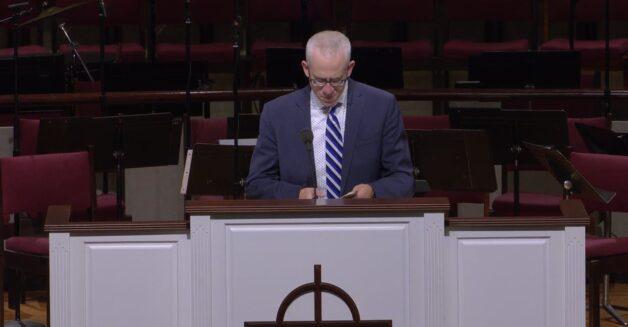Guest Blogger: Jason Helopoulos
Christians need a good theology of Christian death. It matters. Should we rejoice or weep when a brother or sister in Christ dies? Is a Christian funeral service a celebration or time for mourning? A right understanding of how to consider a Christian’s death will stymie the two extremes of merely rejoicing or merely grieving.
It is routine to hear the heartfelt sentiment of a dear dying Christian say, “Don’t weep when I die. Rejoice, for I shall be with Christ”? With the same affection, it is normal to hear family members of a deceased Christian say, “He didn’t want us to grieve. We want to joyfully remember the life he had and remind ourselves that he is truly in a better place”? These are endearing statements. We don’t want to disparage the affection that moved these sentiments. However, these responses are not sufficient. We should not merely rejoice when a Christian dies.
As Romans tells us, “The wages of sin is death” (Romans 6:23). It is not a good thing that our Christian friend or family member has passed away. No matter the benefits after death, death itself is an abomination. Death is an unwelcomed guest. It had no place in creation. Rather, it stormed onto the scene as the thief of life upon the entrance of sin into this world. Therefore, death itself is not to be celebrated. We cannot merely rejoice when a Christian dies somehow forgetting that death is an enemy.
For God formed man from the dust of the earth. Creation is turned on its head as man is returned to the dust in his death. There has been loss and loss that was not meant to be in this world. There has been death, which had no place in the good creation. In fact, at death man is torn asunder. His body and soul, created as one person, is separated. It is true that at that moment when a Christian dies, their soul immediately passes into the presence of Christ (Luke 23:43; Philippians 1:23), but their body is left to decay. The soul is naked before the Lord. And the body lies lifeless and void of the soul until the resurrection. Therefore, there is a sense in which we could say that our naked souls are longing for the day of resurrection. For on that day they will be reunited to our bodies never to experience that horrible separation again. We will forever dwell as we were created to be.
Martha, Mary, and their friends have good reason to weep at the loss of Lazarus (John 11:33). The Scriptures never ask Christians to deny the feeling of grief–it is a right and holy sadness. And we should never ask our loved ones to deny that emotion either. There is a sort of super-spirituality present with such a request or repression. It is an attitude that surpasses the teaching of the Bible and what our Creator has asked of us.
However, we should not merely grieve. When a Christian dies we should also be filled with rejoicing. Truly, for the Christian, “to live is Christ, and to die is gain” (Philippians 1:21). As a believer in Christ departs from this life they are immediately in a far better place (Philippians 1:23). They are with Christ! They have finished the race and kept the faith (2 Timothy 4:7); and that faith has become sight (2 Corinthians 5:7). They no longer see in a mirror dimly, but see Him face to face (1 Corinthians 13:12). The object of their love, affection, and joy is before and with them forevermore.
What glories await the Christian at death. One moment, a feeble sinner experiencing the miseries of this life, and the next moment, one who is adorned with the crown of righteousness (2 Timothy 4:8) in the presence of the King of Glory. There the Christian shall be–surrounded by His glory. A glory which banishes all our enemies. In that place there shall no longer be the experience of loss, grief, pain, discomfort, or regret. Rather, the saint shall dwell in sheer joy and bliss as they revel in the beauty and glory of their Savior and God forever. Therefore, we should rejoice at the death of a Christian, for as the Apostle Paul says, they are “in a far better place” (Philippians 1:23). There may be no greater understatement ever penned–for what glories await us!
When a brother or sister in the Lord passes away, there should be grief and rejoicing. They both have a place. We grieve for what is lost and rejoice at what is gained. That is a good Christian theology of Christian death.



